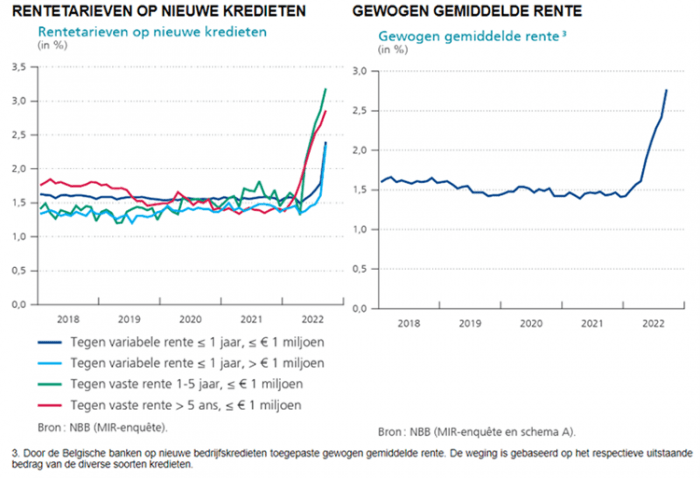Surge in business loans at record high
6 December 2022 - 6 min Reading time
The outstanding volume of business loans at the end of September 2022 was 6.3% higher than a year earlier, reaching 184.4 billion euros. The amount of loans taken out had never been this high.
- While the number of loans granted remained stable, the total amount of loans granted increased. In the third quarter of 2022, 0.2% fewer loans were granted compared to the same quarter the previous year, but the granted amounts were 10.8% higher.
- On the other hand, loan applications showed the opposite trend. In terms of quantity, there were still more business loan applications in the third quarter of 2022 than in the same period of 2021, but the total amount of these requested loans decreased relatively significantly.
- The loan rejection rate was at its lowest level ever for a third quarter. Banks continued to extend credit, although the terms may have been somewhat tightened.
Outstanding business loan amount at record high
At the end of September, the outstanding amount of taken out business loans, including commitment credits, reached a record high of 184.4 billion euros. This represented a 6.3% increase compared to September 2021. This year-on-year growth was quite robust, especially when compared to a 4.3% growth in 2021 and 3.4% growth in the COVID-19 year of 2020.
These are, for example, guarantee credits or documentary credits.
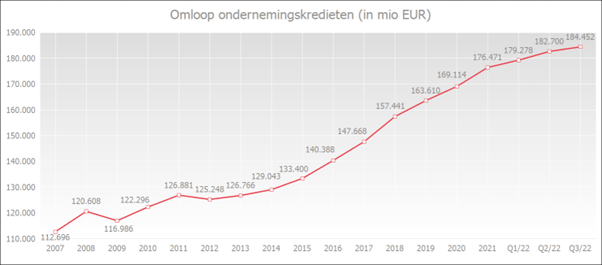
Loan Production Increased in Amount
The evolution of the number of loans granted has fluctuated between -2.0% and +2.0% since the fourth quarter of 2021. This trend continued into the third quarter of 2022, with the number of new loans being nearly the same as in the same quarter of 2021. However, the granted amounts were 10.8% higher than in the same quarter of the previous year.
This increase in the amount primarily occurred in the corporate segment, where the financing amount per case was higher than the previous year.
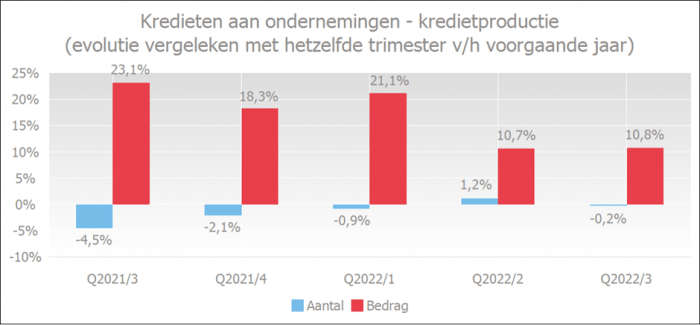
Demand for new credit weakened in amount
In the third quarter of 2022, entrepreneurs applied for 5.3% more loans than in the same period of the previous year. However, there was an 8.6% decrease in the total amount of these requested loans.
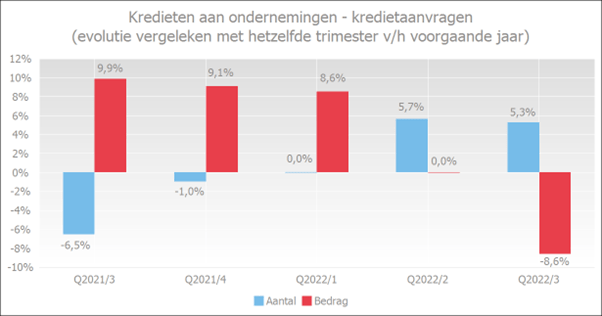
According to the Bank Lending Survey (BLS) conducted by the four major banks, the demand for loans or credit lines by non-financial corporations decreased in the third quarter of 2022. It is expected that this will also be the case in the fourth quarter of 2022. There is particularly less demand for loans to finance investments and acquisitions.
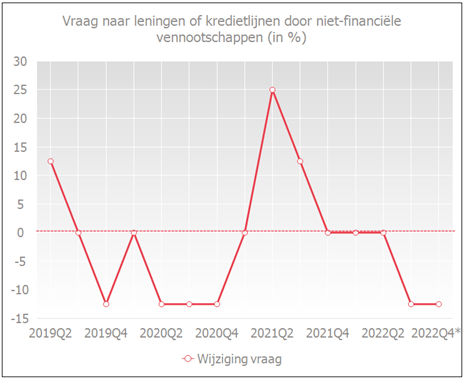
In the chart, a positive (negative) percentage corresponds to an increase (decrease) in credit demand. A zero percentage represents stabilization.
Entrepreneurs encounter more credit constraints
In the third quarter, banks rejected loan applications proportionally fewer times than ever before. The rejection rate reached its lowest level for a third quarter.

However, the four major banks reported via the BLS survey that the criteria used in approving loans (or credit lines) to non-financial corporations were tightened in the third quarter of 2022. It is expected that this will also be the case in the fourth quarter of 2022, primarily due to less favorable expectations for economic activity.
In the chart below, a positive (negative) percentage corresponds to a tightening (easing) of credit conditions. A zero percentage represents stabilization
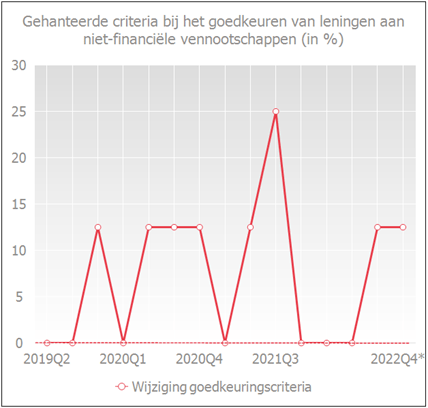
The results of the quarterly survey by the National Bank of Belgium (NBB) on the perception of credit constraints in businesses also indicate that banks may have tightened their credit conditions. According to this survey, more entrepreneurs perceived greater credit constraints in October 2022. In October 2022, 35.7% of businesses considered credit conditions unfavorable, compared to 24.1% in July 2022.
Both small, medium-sized, large, and very large companies reported that credit conditions had become more restrictive in October 2022.
The chart below illustrates the evolution of credit perception. A decrease indicates an easing of credit conditions, while an increase suggests that, according to businesses, it is less advantageous to obtain credit.
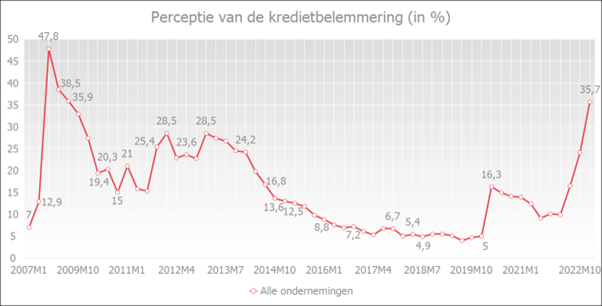
Rising interest rates
According to data from the National Bank of Belgium (NBB), the weighted average interest rate on new corporate loans was 2.77% in September 2022 (compared to 2.41% in August 2022). Interest rates had fluctuated around 1.5% for a few years, but they started rising from February 2022 due to higher market rates.
